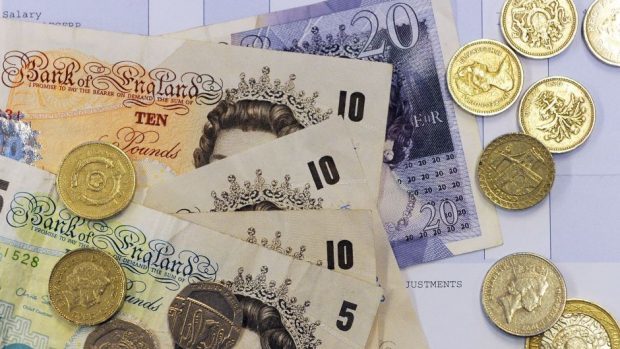A leading economist has warned that the future of local government finance is “worrying” and that many councils do not have the skills and support to cope.
Jim Cuthbert, who previously served as chief statistician in the Scottish Office, also argued that any imminent changes to council funding in Scotland must be linked to further devolution of tax powers for Holyrood.
In a paper published in December 2016, he warned that local authorities could soon discover that they “cannot afford” the consequences of the borrowing they have been carrying out to fund capital projects.
Mr Cuthbert reiterated his concerns yesterday, telling The Press and Journal: “The financial systems within local authorities are clearly not really up to what they are being asked to do.
“That was really the point that was coming over in my Prudential Code paper, and that still stands.
“The financial planning systems are just not there, and government are not giving adequate support to enable them to plan financially properly.”
The Prudential Code, which applies to the whole of the UK, was a major change in local authority capital expenditure which was introduced in 2004.
Previously, the Scottish Government controlled local authority borrowing, but the new rules allowed authorities to determine their own levels of capital expenditure and borrowing, provided they abide by a code that was designed to ensure they act prudently.
In yesterday’s P&J, council leaders from across northern Scotland joined forces to demand more control of the way they raise funds, in the hope of plugging funding gaps.
But Mr Cuthbert said any such change could only be considered once Holyrood is given more powers over tax.
“The future for local authority finances is worrying, and the answer is not just to give them more tax-raising powers, it has to be seen as part of a wider reform of the over financing of the Scottish Government,” he said.
“I think that the way that the fiscal settlement has been set-up for Scottish Government finances has been a disaster, and the government really has far too few tax powers.
“The danger is that the Scottish Government effectively uses local authority finance as a the pressure valve in the system, and what’s liable to happen is that the Scottish Government will pass over responsibility for raising revenues increasingly to local authorities.
“And as they respond by raising whatever tax powers they have got, you could get a thoroughly distorted system.
“Yes, the financing of local authorities needs to be looked at again, but that has to be seen in the context of a wider review of the tax raising powers of the Scottish Government, and Scotland has to get its hands on a wider set of potential tax resources than it has got at present.”
Amid debates over the introduction of a local “tourist tax” in many areas, and a new workplace car park levy, Mr Cuthbert highlighted “two dangers” involved in giving councils more tax powers.
“If too much revenue has to be raised from local taxes, one is we get an unbalanced system vis-à-vis the rest of the UK, which wouldn’t be healthy, but secondly the other danger is the differential resources at different local authorities,” he said.
“So some authorities will be able to cope, other authorities will either have to suffer very bad cuts to services, or high rates of local taxes.
“Reform to my mind has to be done in way which addresses varying resources between local authorities, but also done in such a way that doesn’t throw all the pressure of raising extra revenue in Scotland on local resources, because you’ll get a very unbalanced system if that happens.”
